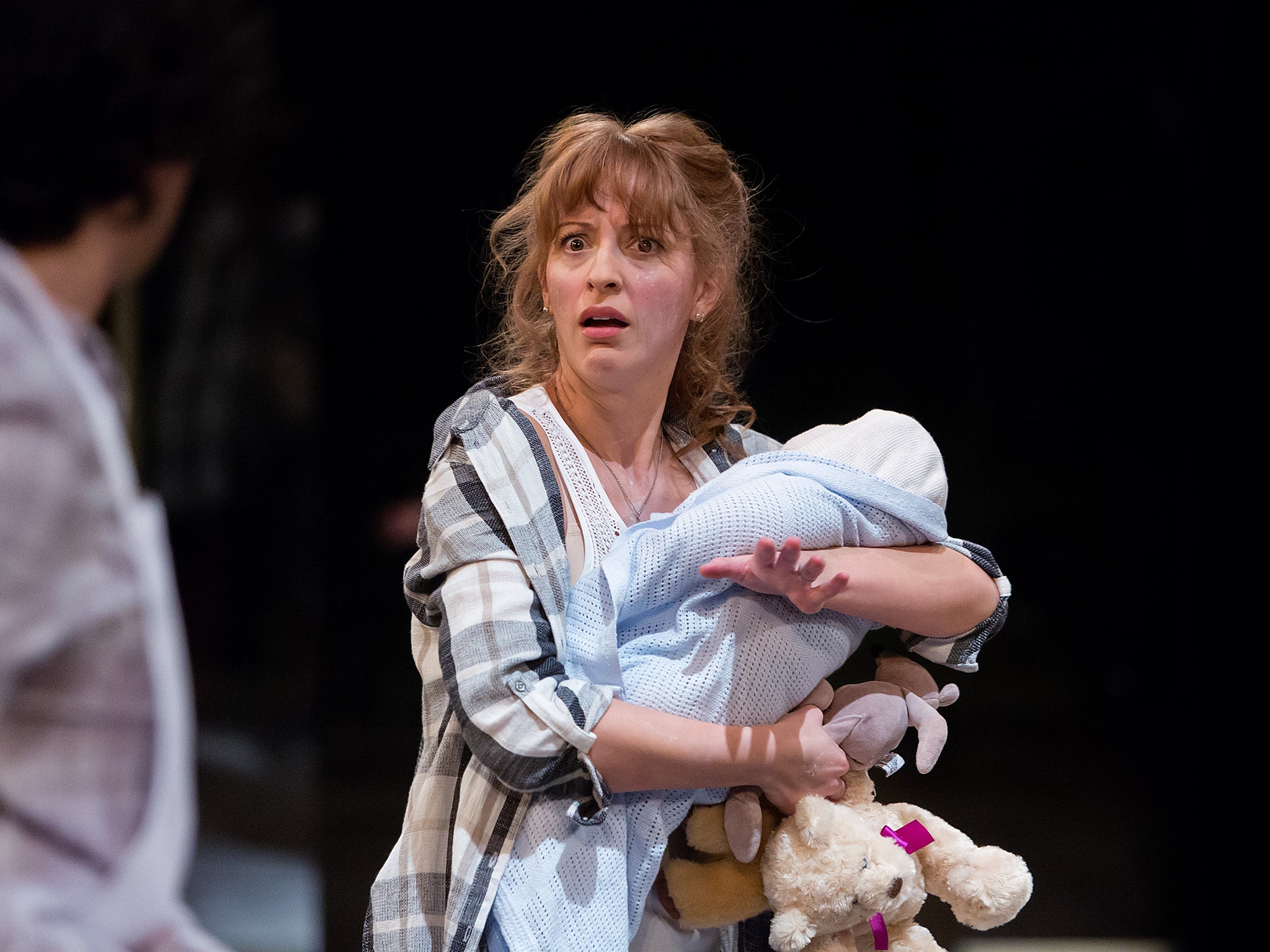Into the Woods, Royal Exchange, Manchester: Second half is the more compelling by far
Matthew Xia’s production shows the confection of the first half is merely a prologue to the superb second

Twice upon a time. Stephen Sondheim’s Into the Woods is, to borrow from football commentary, a play of two halves. But unlike Waiting for Godot – in which, famously, nothing happens, twice – the first and second parts of Sondheim’s musical are entirely different. Usually part one is far more successful dramatically than part two. It is a singular triumph of Matthew Xia’s production at the Royal Exchange in Manchester that the second half is the more compelling by far.
The musical’s ingenious book, by James Lapine, brings together five famous fairy stories into one interlocking single plot. It is immensely clever and funny but it inhabits the world of folk archetypes. After the interval it turns much darker as Sondheim adds psychological depth to the characters. The Witch is stripped of her magical powers. Cinderella is removed from her prince. Jack abandons his beanstalk. Red Riding Hood is bereft of both mother and grandmother. The straitjacket of the narrator vanishes leaving the characters in a post-modern world where they must make their own decisions and create their own plot.
Most productions have great fun with Sondheim’s sparkling score and deliciously witty lyrics in the clever first-half satire of fairy tale. But, as in the recent Hollywood movie starring Meryl Streep, they often struggle to make sense of the disturbing depths of the second half. The movie just scrapped much of it.
Matthew Xia offers the opposite. There are moments in his first half which are insufficiently spectacular or slick. Early on the singing is less assured, though the ensemble work is tight by the first act finale. The witch’s weedy wand lacks the silly irony of the birds who are Cinderella’s familiars. Her unwitching is low on theatricality. The wolf is comic but lacks sexual menace (nakedness is not enough). But there is a fine moment of comic theatre in how Red Riding Hood and then Grandma emerge from the wolf’s stomach. And Rachel Goodwin’s puppetry with the cow is skilled.
But Xia comes into his own in the second half and makes us realise that this is the core of the piece to which the first-half confection is merely a prologue. The intimacy grows between Alex Gaumond as the Baker and his Wife – perhaps the strongest performance of the night from Amy Ellen Richardson who finely balances comedy and pathos in her seduction by Cinderella’s husband.
Gillian Bevan grows into a figure of subtlety as the Witch with fine and moving singing at the end. Francesca Zoutewelle as Cinderella becomes a power-dressing princess with serious authority which gives way to a proper empathy by the end. And Michael Peavoy and Marc Elliott as the low-camp deeply-shallow princes are first class in their reprise of one of the show’s finest numbers, “Agony”.
The set was simple but evocative. The eight-piece band were effective. And Maxine Peake’s offstage giant was suitably stentorian. Nice is different than good, Sondheim warns us. But sometimes you can have both.
Join our commenting forum
Join thought-provoking conversations, follow other Independent readers and see their replies
Comments
Bookmark popover
Removed from bookmarks